Table of Contents
If you are just getting started with nootropic supplements, the choices can seem overwhelming. And even confusing at times.
Here at Nootropics Expert I do my best to reduce the overwhelm and confusion.
Natural nootropics are typically made from plants or plant extracts, amino acids, and other nutrients sourced from nature.
The term “nootropic” was coined in 1972 by Romanian psychologist and chemist Dr. Corneliu Giurgea. It is derived from the Greek words nous (mind) and trepein (to bend).[i]
Dr. Giurgea described a nootropic as having the characteristics of enhancing learning and memory. It should protect the brain while increasing natural cognitive processes. And should not be toxic, nor stimulate or depress the brain.
By this definition, smart drugs are not nootropics.
This post reveals the best natural nootropics to improve cognitive function, energy and motivation. And reducing anxiety and depression. This list can be particularly helpful for anyone out there with attention deficit hyperactivity disorder (ADHD).
You’ll learn why each natural nootropic works. And you’ll find a live link through to a full review for each nootropic described in this post.
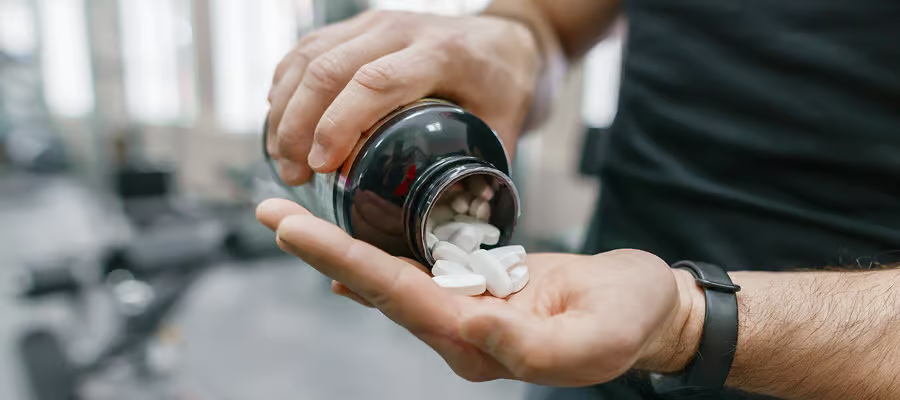 Natural Nootropics for Quicker Thinking
Natural Nootropics for Quicker Thinking
How fast you can ‘think on your feet’ or make a decision touches every area of your life.
Think of how much easier life is when it feels like your brain is firing on all cylinders. Driving is safer and stress-free. Relationships are better with fluid conversation. Business is more successful when decisions come easier.
Cognition includes thinking, knowing, short–, working–, and long-term memory, decision-making and problem solving.
That seems like a lot of brain power because it is. But a small stack of natural nootropic supplements can help.
- CDP-Choline – is also known as Citicoline. This naturally occurring choline source is present in every cell in your body.
The choline in CDP-Choline aids in the synthesis of acetylcholine and the release of dopamine in your brain. Both neurotransmitters critical to quicker thinking.[ii]
If there is not enough choline in your system, your brain gets it from phosphatidylcholine (PC) that makes up the outside of each brain cell membrane.
The PC in cell membranes releases choline to help make acetylcholine. But when your neurons lose too much choline, they lose integrity. Thinking slows, and cognitive impairment occurs.[iii]
You can prevent this decline and even boost this function by supplementing with CDP-Choline.
- Creatine – is an amino acid naturally produced in your liver, kidneys and pancreas.
As a natural nootropic, supplementing with Creatine helps re-charge Adenosine Triphosphate (ATP) produced by your mitochondria and after that ATP is used as your cellular energy source. Creatine adds a phosphate molecule to the depleted ATP so it can be used again to fuel brain cells. Creatine essentially re-charges the fuel cells in your neurons.
ATP is also directly involved in producing, packaging and secreting neurotransmitters. Which boosts intelligence, improves memory, boosts mood, and facilitates quicker thinking.[iv]
- Lion’s Mane Mushroom – a “brain tonic” used by Buddhist monks for thousands of years to enhance brain power. And strengthen their ability to focus during meditation.
Lion’s Mane stimulates the repair and creation (neurogenesis) of neurons in your brain. By increasing enzyme production that releases Nerve Growth Factor (NGF).[v]
By boosting neurogenesis and assisting in repair, Lion’s Mane as a natural nootropic supports healthy neurotransmitter levels and better brain cell signaling. Affecting memory, learning, recall and mood. Leading to quicker thinking and decision-making.
- Pine Bark Extract – as a natural nootropic is used primarily to increase cerebral blood flow. By increasing nitric oxide which helps dilate blood vessels.[vi]
Better blood flow in your brain results in quicker thinking.[vii]
 Natural Nootropics for Energy & Motivation
Natural Nootropics for Energy & Motivation
You realize you could use more energy if you’ve ever felt mentally drained after an intense study session or exam, a misunderstanding with your partner, or after working out a business problem.
A quick cup of coffee may seem to perk you up for a bit. But it doesn’t last and certainly will not help in the motivation department.
The caffeine in coffee is an adenosine antagonist. Helping you put off sleep for a while. But it’s not a true source of energy.
The right stack of natural nootropic supplements on the other hand can help boost ATP energy production in your mitochondria. Helping to provide all the energy you need to make it through your day. So you do not feel completely drained on your way home.
- Acetyl L-Carnitine (ALCAR) – is a precursor required for the synthesis of acetylcholine (ACh) in your brain. ACh is directly tied to memory, brain cell energy production, and better overall brain function.
ALCAR works as a shuttle transport for fatty acids through brain cell membranes. ALCAR helps deliver fatty acids into mitochondria where it’s used in the Krebs cycle that produces cellular energy.[viii]
And ALCAR helps shuttle used fatty acids out of mitochondria once they’ve served their purpose.[ix] Continuously flushing out toxic byproducts ensures pure, clean energy throughout your day.
- Alpha Lipoic Acid – as a natural nootropic increases acetylcholine production by activation of choline acetyltransferase and by increasing glucose uptake. This process supplies more Acetyl-CoA to produce acetylcholine.[x]
Acetylcholine is integral to brain cell signaling, memory formation, better overall brain function and energy.
The R-Lipoic Acid form of this nootropic supplement functions as a cofactor for mitochondrial enzymes involved in energy production.
Alpha Lipoic Acid is an unique antioxidant. It’s water- and fat-soluble which means it works as a neuroprotectant both inside and outside each of your brain cells. The more lipoic acid you have in your system, the more antioxidant benefits you experience.
Alpha Lipoic Acid also helps regenerate the antioxidants already in your system including Vitamin C, Vitamin E, glutathione, and CoQ10.[xi]
Alpha Lipoic Acid is one of the best natural nootropics because it boosts brain cell energy while reducing inflammation. And even getting rid of heavy metals.
- Coenzyme Q10 – is also known as “ubiquinone” because it is ‘ubiquitous’ in the human body. CoQ10 is used by every single cell.
CoQ10 is your cell’s natural source of energy. It fuels your mitochondria energy production capability by taking fat and other nutrients and converting them into an usable form of energy.
Your body uses CoQ10 faster than it can produce it. Meaning you need supplemental CoQ10 either from food or a nootropic supplement. In food, you can get CoQ10 from eating fatty fish, beef, poultry, nuts, seeds and oils.
Supplementing with high quality CoQ10 can be one of the most powerful natural nootropics for boosting energy.
- PQQ – is the only known nutrient and natural nootropic that can promote the growth of new mitochondria.[xii] More mitochondria means more energy.
And PQQ boosts the production of Nerve Growth Factor (NGF) which assists in the repair, maintenance, and regeneration of neurons in your brain. Including many of the neurons responsible for cognitive performance like learning and memory.
Research from hundreds of clinical studies demonstrate that PQQ helps boost energy levels and stamina, reduces fatigue, and improves cognition, memory, learning and recall.[xiii]
 Natural Nootropics for Anxiety & Depression
Natural Nootropics for Anxiety & Depression
Anxiety and depression are something most of us have had to deal with at one time or another.
Anxiety[xiv] and depression[xv] are often grouped together both in nootropic circles as well as in the psychiatric/medical world. But they are two distinctly different conditions. Even though the cause of anxiety and depression may overlap.
The cause of anxiety and depression can be traced to a number of different conditions. But contrary to what mainstream medicine and the big drug companies would have you believe, it’s probably not as simple as a serotonin imbalance.
Sure, neurotransmitter levels that are out of balance can cause severe depression. But it may also be a problem with GABA, dopamine, acetylcholine, or norepinephrine.
So boosting serotonin in this case will not help. And is often the reason why so many people have no success with SSRIs and other prescription antidepressants.
Illness and stress can also cause anxiety and depression. Poor cerebral blood flow, a lack of Brain-Derived Neurotrophic Factor (BDNF), Nerve Growth Factor (NGF), mental fatigue from a lack of cellular energy, Alzheimer’s Disease, Parkinson’s, stroke and more can all cause anxiety and depression.
The bottom-line is it may take experimenting with different natural nootropic supplements before you are able to figure out what is causing your anxiety and depression. And which nootropic or nootropic stack will work for you as your next cognitive enhancers.
But if your depression or anxiety is severe, please, please seek professional help while you are exploring your nootropic options.
- Bacopa Monnieri – is one of the most powerful herbs in Ayurvedic healing. Bacopa has been used for millennia to relieve anxiety, fatigue, restore energy and boost concentration.
This adaptogen has been shown in clinical studies to work as well for depression as benzodiazepines and tricyclic antidepressants.[xvi]
- Coenzyme Q10 – is your cell’s natural source of energy. Contributing to ATP synthesis in your mitochondria by taking fat and converting it into usable energy. CoQ10 preserves brain function, helps fight mental illness and migraines.
Major depression, bipolar disorder and schizophrenia are now being recognized as having mitochondrial dysfunction in common. Which is often accompanied by higher oxidative stress levels.[xvii]
Studies show that 1,200 mg per day of CoQ10 in bipolar adults experienced a significant reduction in depression.[xviii] Note that this is a very high dose of CoQ10 and not recommended unless done under your doctor’s supervision. The standard recommended adult dose for CoQ10 is 200 – 400 mg per day.
- Ginkgo Biloba – is a tree native to China that has been used used in traditional Chinese medicine for thousands of years to improve mental function like alertness, improve cerebral circulation and improve overall brain function.
Many have found Ginkgo Biloba to be effective in reducing anxiety and stress. And for boosting mood.
1,570 men and women in England participated in a study using 120 mg of Ginkgo Biloba extract daily for 4, 6, and 10 months.
Those who used Ginkgo the longest experienced the most improvement in ratings for anxiety, depression, energy, reduced drowsiness, sadness and increased happiness.[xix]
- N-Acetyl L-Tyrosine (NALT) – is a highly bioavailable form of the amino acid L-Tyrosine. Your brain uses tyrosine for the synthesis of dopamine and norepinephrine.
Dopamine is associated with libido, memory, focus, concentration, and mood. And studies show that low dopamine can be a cause of depression.[xx]
And norepinephrine which is synthesized from dopamine is associated with the regulation of emotions and cognition. Several studies show increases in norepinephrine in the brain can help alleviate depression.[xxi]
- Rhodiola Rosea – is an adaptogen and herb that has been used in traditional medicine in Russia and Scandinavian countries for centuries.
Rhodiola activates AMPA receptors in your brain. Which decreases depression and stress-related mood swings, reduces fatigue, stimulates energy and alertness, and boosts cognition.
A clinical trial was conducted with 57 depressed patients who were given Rhodiola Rosea extract, sertraline (Zoloft®), or a placebo for 12 weeks.
The study found that Rhodiola was slightly less effective than sertraline for depression. But produced far fewer side effects and was better tolerated compared to the drug.[xxii]
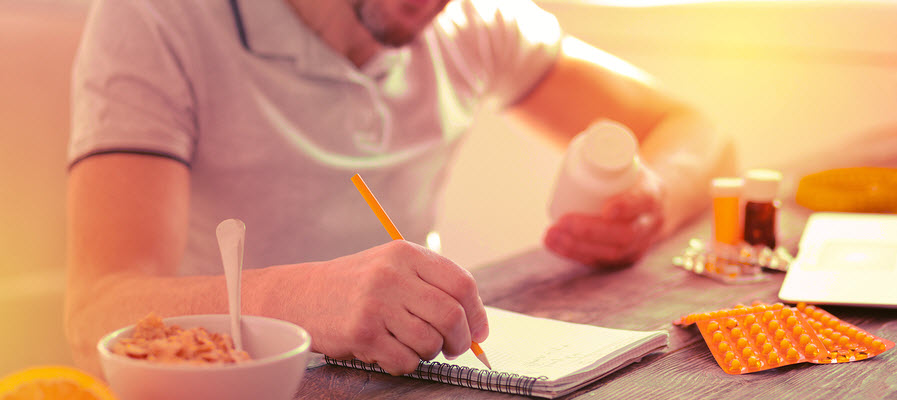 Best Natural Nootropics to Buy for Cognitive Function
Best Natural Nootropics to Buy for Cognitive Function
Experienced neurohackers typically start with individual nootropic supplements. With the intention of finding out exactly what works for their unique problems.
But most find that it takes more than one natural nootropic to alleviate the symptoms of brain-related health issues.
First, they find what works for them. And then select a combination of supplements that we call a “nootropic stack”.
The thing is, putting together the best natural nootropic stack can take time. And could be a considerable financial investment.
Another option that could save you time and money is a high quality pre-made nootropic stack.
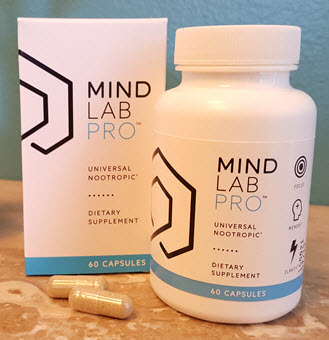 My favorite natural nootropic stack, and the one I’ve been using daily for the last 6 years is Mind Lab Pro®4.0 which is known as the world’s first “universal” nootropic stack.
My favorite natural nootropic stack, and the one I’ve been using daily for the last 6 years is Mind Lab Pro®4.0 which is known as the world’s first “universal” nootropic stack.
Mind Lab Pro® contains therapeutic dosages of CDP-Choline, Bacopa Monnieri, Lion’s Mane Mushroom, Phosphatidylserine (PS), N-Acetyl L-Tyrosine (NALT), L-Theanine, Rhodiola Rosea, and Pine Bark Extract. And the B-Vitamins B6, B9 and B12 required for the synthesis of neurotransmitters acetylcholine, dopamine, norepinephrine, and serotonin.
Performance Lab® is a sister company to Mind Lab Pro® who make a nootropic stack called Performance Lab® Energy which contains therapeutic dosages of Coenzyme Q10, PQQ, Acetyl L-Carnitine and R-Lipoic Acid. Another great option if you want to boost energy and motivation. But want to do it naturally.
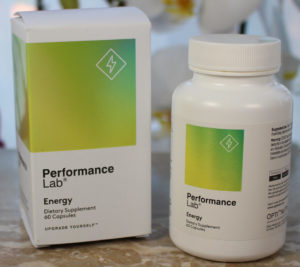 My Nootropics Expert® recommendation is put together a natural nootropic stack using the information provided in this post.
My Nootropics Expert® recommendation is put together a natural nootropic stack using the information provided in this post.
And if you want to save some time and money, try Mind Lab Pro®. Which covers all the brain health issues and age related cognitive decline we talked about earlier. And for more energy and motivation, try Performance Lab® Energy.
You don’t need to risk smart drugs for better better mental performance, concentration, focus, energy, and mood.
Natural nootropics work and have been proven by millions of neurohackers worldwide.

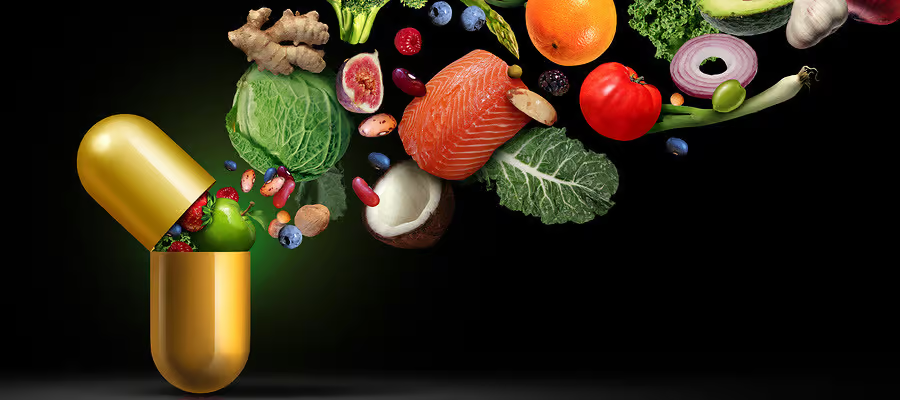





Join The Discussion - 10 comments
Gary Siegel
December 28, 2023
How many type of choline should I be taking I wait to get alpha gpc I eat 4 raggedy a day and 2 cups of milk and I was watching you video on hacking your memory and you said I should take CDP choleine and I was thinking of taking phosphidytalcholeine please help me out I’m on a limited budget I trust your judgment implicitly most of the supplements I take are based on your knowledge so give me some of that knowledge love your show and your books Gary
David Tomen
December 28, 2023
Gary, if you are going to use one choline supplement I suggest CDP-Choline and it’s all you need along with ALCAR to product acetylcholine.
Serena
July 13, 2022
Hello David,
I’ve dabbled on and off with nootropics for years, but still haven’t found the right fit. I don’t have depression or serious anxiety, I just want something that will improve my mood and energy during the day. I’m a busy mom constantly chasing behind kids, cleaning up messes, chores, pick ups from school, etc., and find myself frazzled and irritable sometimes. I’d like to be more pleasant and easy going if that makes sense. I’d prefer a supplement that’s fast acting rather than something that takes weeks to work. I’ve tried rhodiola, Same, and a few others over the years that really didn’t have much of an effect. I’ve read through your blog extensively, and have a general idea of what to try, but I’d like to ask based on what I described my needs are, what would you suggest?
David Tomen
July 13, 2022
Serena, it depends on your age and any other health issues you may be dealing with. But one of the safest and easiest things to try for calming you is either Lemon Balm or CBD Oil or both. Start with Lemon Balm extract. See my review.
Serena
July 13, 2022
Thank you for those suggestions. The lemon balm sounds interesting based on your review. I’m 46, physically fit, very active, and in good health with no major or minor issues. Could I stack lemon balm with , L-Tryptophan and alpha gpc? Or would those conflict? I’ve always wanted to try mucuna but I’ve been apprehensive due to the potential negative effects if used incorrectly, plus I’m not sure if it’s even an appropriate supplement for my needs.
David Tomen
July 14, 2022
Serena, there is nothing wrong with combining the first 3 but L-Tryptophan is usually used before bed because it makes serotonin which goes on to make melatonin.
Alpha GPC increases acetylcholine which may be helpful. And instead of Mucuna Pruriens I suggest using L-Tyrosine is you are looking to increase dopamine during the day.
Daniel Jansky
September 16, 2021
Hi David! I love your material. One natural nootropic that I rarely see discussed is deer antler velvet. For me, it is one of my favorite supplements. It enhances my cognition, boosts mood, and gives energy. It is also highly effective for pain and inflammation. It takes away pain that is crippling to myself and others I have shared it with. The energy, mental clarity, and mood boost makes it part of my daily stack. What are your thoughts on this supplement?
David Tomen
September 21, 2021
Daniel, I can honestly say that deer antler velvet has never crossed my radar. And there is something about taking the antlers from Bambi that just make me sad.
But it sounds like you are getting plenty of benefit from it. Do you know if there is enough clinical evidence backing its use as a nootropic that I could write a 12 – 15 page review of it?
Ed
June 5, 2019
Hi David,
I saw a clip of yours on Youtube and your voice sounded familiar. Did you do a voiceover about antenna climbers?!
It sounds a lot like you.
https://www.youtube.com/watch?v=tgO4Gd4RhvM
David Tomen
June 6, 2019
Ed, interesting video but no, it’s not me doing the voice.